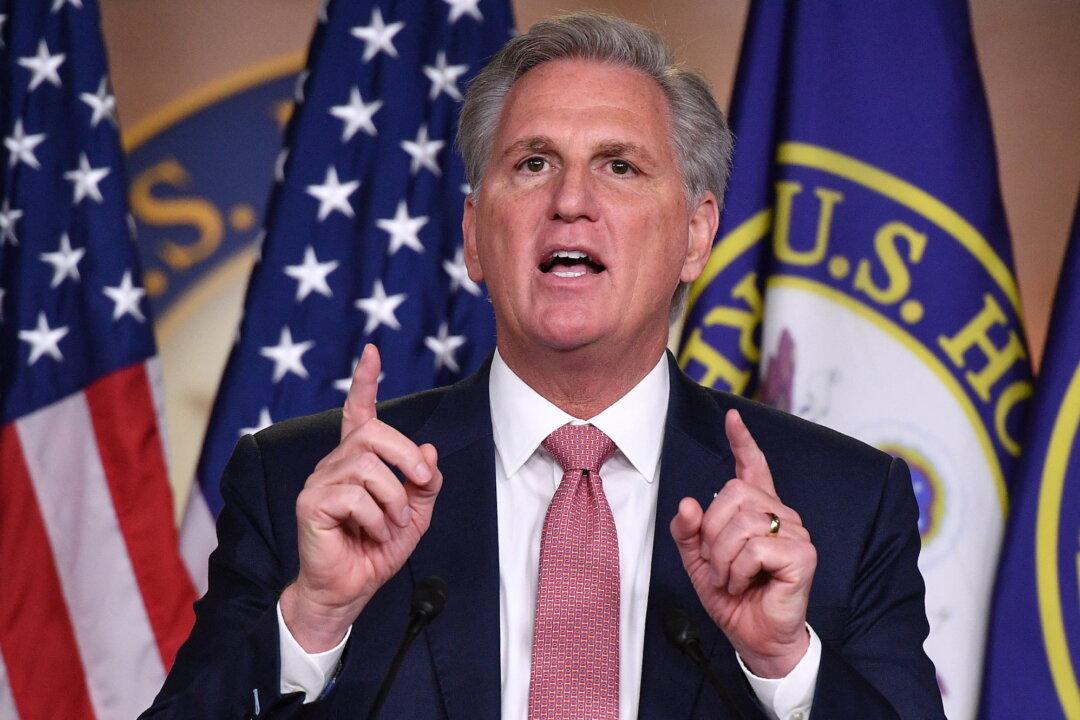House Minority Leader Kevin McCarthy (R-Calif.) said Tuesday that companies pulling out of Georgia over the state’s new voting rights law should first read the bill to find out what the law requires.
“Why is it so wrong that somebody has to show an ID, that you have accuracy in elections, or in a Georgia law that you’re allowed to have an election by mail or vote early. I think that’s appropriate. I think people should read bills before they make judgments,” said McCarthy during an interview with CNBC’s “Squawk Box.”





